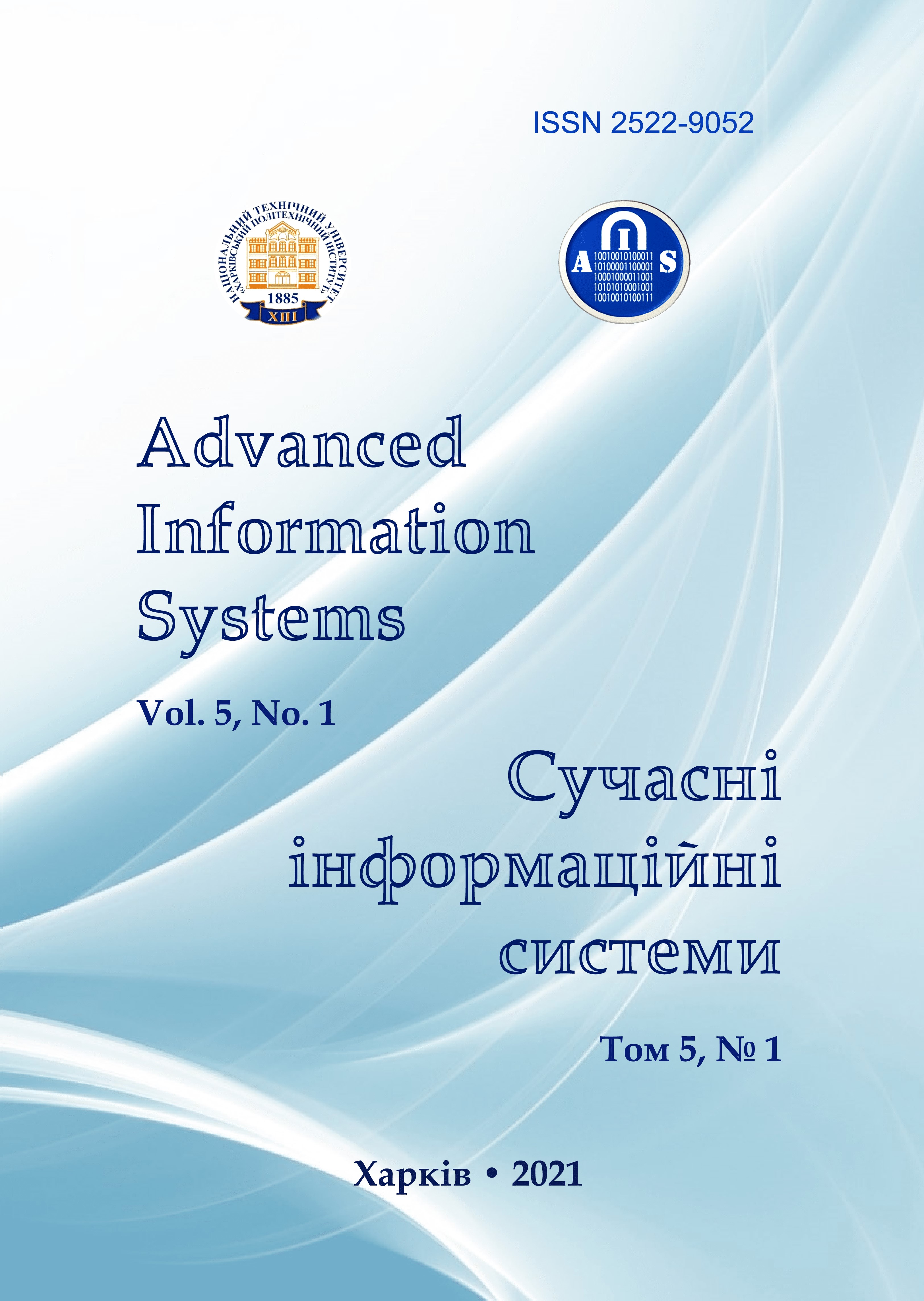Application of the ontology of the choice of selection to describe the processes of interaction of subjects of military communication management
Main Article Content
Abstract
The ways of improving the mechanisms of information and analytical support of the command control system in the state of emergency are analyzed. The approach to the application of the ontology of the choice problem for decision-making in the field of law enforcement management using the procedure of integration of information resources based on the binary partial order relation is used. The purpose of the article is to increase the efficiency of decision-making in the management system of the military command in a state of emergency by applying the ontology of the choice problem based on a set of semantically significant results. Results of the research. Analysis and processing of large arrays of information in the field of military command management in a state of emergency should be carried out in an automated mode on the basis of a distributed software environment based on the principles of ontologies. Ontological systems, as a result of the inverse mapping of natural systems, provide the correct aggregation of various thematic processes through the formation of a structured set of information objects-concepts of the subject area, which are defined as a single type of data. The ontological representation of the contexts of units-concepts provides their integrated use in the process of solving complex tasks by the governing bodies of the command in a state of emergency. One of the constructive ways to integrate information resources as passive knowledge systems is to activate their concepts based on the process of forming thematic ontologies and combining these ontologies by building an ontology of the choice problem over them. The uniqueness of the ontology of the choice problem to any homotopy type allows to build the procedure of integration of information resources on the basis of a binary partial order relation. The partial order relation allows to reflect in an integrated way interaction of contexts of the notion-concepts defining subjects of information resources. The contradiction between the increase in the amount of information needed for decision-making in the field of management of interdepartmental critical systems and the constant requirement to reduce the time for its processing in the information-analytical systems has been resolved.
Article Details
References
Tyutyunnikov, N.N. (2018), “Informatization of the Armed Forces”, Military thought in terms and definitions, Publishing house "Pero", Moscow, 472 p.
Grin, V.R. (2008), “Verbal model of the infosphere of command and control of troops (forces): a resource approach”, Voyenna-ya mysl, No. 3, pp. 62–69.
Laktionov, V.I. (2002), “Intellectual technologies in the information and analytical activities of military command and control bodies: implementation problems”, Voyennaya mysl, No. 6б рр. 60–64.
Biryukov, V.V. (1999), “Problems of Informatization Management of the RF Armed Forces”, Voyennaya mysl, No. 4, pp. 35–41.
Gladun, V.P. (1994), Processes of the formation of new knowledge, SD "Pedagogue 6", Sofia, 192 p.
Gruber, T.R. (1993), “A translation approach to portable ontology specifications”, Knowledge Acquisition, No. 5, pp. 199–220.
Shatalkin, A.I. (2012), Taxonomy. Foundations, principles and rules, KMK, Moscow, 600 p.
Kolmogorov, A.N. (2005), Dragalin AG Mathematical logic, URSS, Moscow, 240 p.
Kleene, S.K. (1957), Introduction to metamathematics, Foreign Literature, Moscow, 526 p.
Mikoni, S.D. (2014), Theory and practice of rational choice, Route, Moscow, 463 p.
Voevodsky, Vladimir (2015), “An experimental library of formalized Mathematics based on the univalent foundations”, Math-ematical Structures in Computer Science, Cambridge University Press, Vol. 25, pp. 1278–1294.
Malishevsky, A.V. (1998), Qualitative models in the theory of complex systems, Nauka, Fizmatlit, Moscow, 528 p.
Barendregt, X. (1985), Lambda calculus. Its syntax and semantics, Mir, Moscow, 606 p.
Lialetskiy, A.A. (2008), “On some properties of set-theoretic models of the Lambda theory”, Mathematical machines and sys-tems, No. 4, pp. 10–22.
Barsegyan, A.A., Kupriyanov, M.S., Stepanenko, V.V. and Kholod I.I. (2007), Technologies for data analysis. DataMining, VisualMining, TextMining, OLAP, BHV-Petersburg, Saint Petersburg, 384 p.
Tumanov, V.E. (2016), Fundamentals of design of relational databases, Intuit, Moscow, 504 p.
Barendreght, X. (1985), Lambda calculus. Its syntax and semantics, Mir, Moscow, 606 p.
